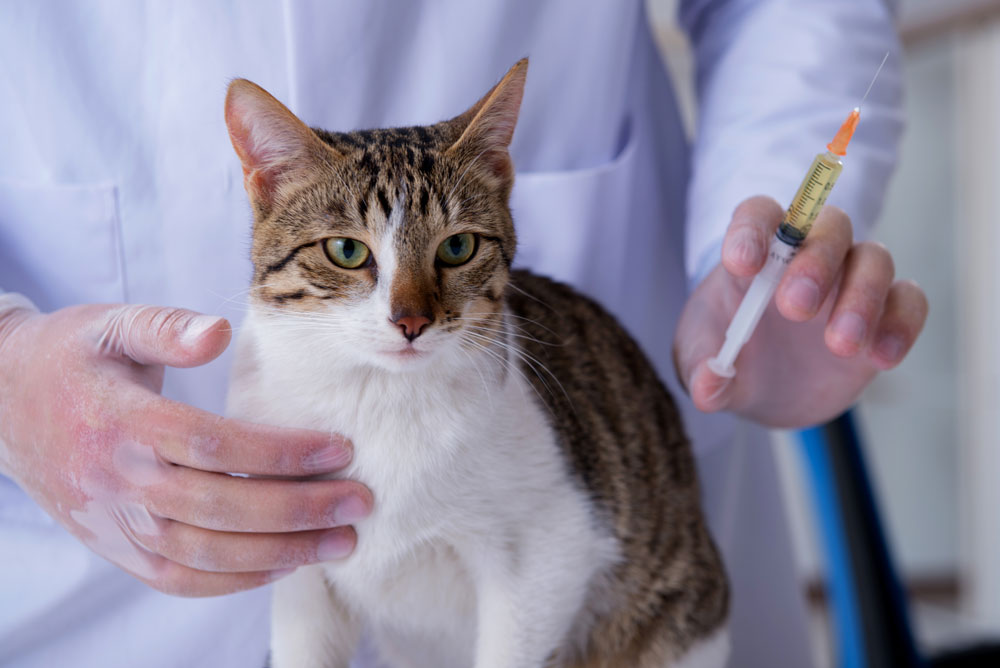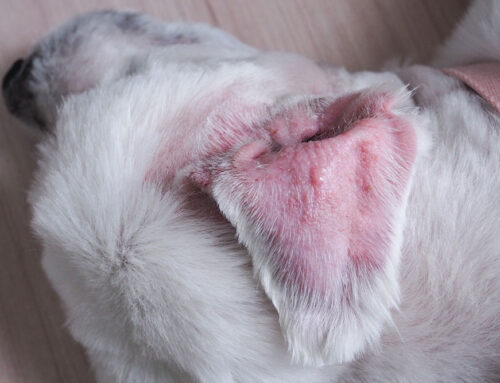Essential Emergency Tips: Your Guide to Puppy and Kitten Care
Understanding the Urgency of Pet Care
Recognizing emergency signs in puppies and kittens is crucial for every pet owner. At Valley Center Veterinary Clinic, we are dedicated to providing immediate, compassionate care to the pets of Valley Center, California. Our team is trained to handle a wide range of emergencies, ensuring that your pet receives the best possible care when they need it most.
Common Signs of Emergencies in Puppies and Kittens
Breathing Difficulties: When to Seek Immediate Help
Breathing difficulties in young pets can manifest as rapid breathing, choking, or a persistent cough. These symptoms could indicate conditions such as pneumonia, tracheal collapse, or obstruction by a foreign object. Prompt diagnosis is essential, often involving physical examinations and imaging tests. Treatment may include oxygen, medications to reduce inflammation, or surgical intervention.
Suspected Poisoning: Critical Steps to Follow
Puppies and kittens are naturally curious, leading them into dangerous situations with household toxins like cleaning products, certain plants, and human medications. Symptoms of poisoning can include vomiting, diarrhea, drooling, seizures, and unconsciousness. Immediate action is crucial.
Veterinary treatment might include inducing vomiting, administering activated charcoal, IV fluids, and medications to counteract the toxin’s effects. Preventative measures at home include keeping potential toxins out of reach. Keep the number for Pet Poison Control handy.
Severe Vomiting and Diarrhea: Recognizing Dehydration Risks
Frequent vomiting or diarrhea can quickly lead to dehydration in young pets, causing complications such as electrolyte imbalances. These symptoms could stem from infections like Canine Parvovirus or dietary indiscretions.
Diagnosis often includes fecal testing, blood work, and possibly ultrasound. Treatment may involve fluid therapy, anti-nausea medications, and dietary modifications. Preventative measures include a balanced diet and avoiding sudden changes in food.
Learn more about Canine Parvovirus.
Handling Injuries: From Minor Cuts to Fractures
First Aid for Minor Wounds
Immediate first aid for minor cuts and scrapes can prevent infection. Clean the wound with mild soap and warm water, apply a pet-safe antiseptic, and cover it with a clean bandage. Monitor for signs of infection such as redness or swelling.
In a veterinary setting, wounds may require further cleaning, suturing, or antibiotics.
Recognizing and Reacting to Fractures
Fractures can result from falls, accidents, or rough play. Symptoms include visible bone, abnormal limb positioning, or excessive pain. Immediate veterinary care is essential.
Diagnosis usually involves X-rays. Treatment options range from splinting and casting to surgical intervention. Recovery often includes rest and restricted movement.
Refer to this guide for pet emergencies.
Urgent Dietary Issues: Choking and Dietary Mishaps
What to Do If Your Puppy or Kitten Is Choking
Choking can occur when pets swallow large objects or when food becomes lodged in their throat. If you suspect choking, try to visualize the blockage by opening the pet’s mouth. If reachable, gently remove it with tweezers. Seek veterinary care if the object is not easily accessible.
At the clinic, veterinarians may use endoscopy to remove obstructions. Prevention includes choosing appropriate-sized toys and feeding small food pieces.
Preventing and Handling Dietary Mishaps
To prevent dietary mishaps, keep toxic foods like chocolate, grapes, and onions out of reach. Secure trash cans and food storage areas, and regularly inspect your home for hazards. Educate family members about safe foods for pets.
Neurological Emergencies: Seizures and Sudden Paralysis
Understanding and Managing Seizures in Young Pets
Seizures can be caused by congenital abnormalities, infections, or toxins. During a seizure, keep the pet away from objects that could harm them and do not restrain them. Report details to your veterinarian for diagnosis.
Veterinary intervention may include anticonvulsants. Long-term management involves monitoring for triggers and regular check-ups.
Signs of Sudden Paralysis
Sudden paralysis can result from spinal injuries, neurological disorders, or infections. Minimize movement and contact your veterinarian immediately.
Diagnosis may involve neurological exams, imaging, and blood tests. Treatment varies based on the cause and may include medications, surgery, or physiotherapy.
Visit our Diagnostic Services.
Behavioral and Anxiety-Related Emergencies
Recognizing Signs of Severe Anxiety
Severe anxiety in pets can manifest as pacing, trembling, or excessive vocalization. Managing these signs involves creating a calm environment and using prescribed medications or behavior modification techniques.
Long-term strategies may include training programs and professional consultations.
Preventative Measures and Regular Health Checks
The Importance of Regular Veterinary Visits
Regular visits allow monitoring of your pet’s health and prevention of emergencies. These visits help in early detection of health issues, such as developmental abnormalities or diseases.
Veterinarians perform comprehensive exams, update vaccinations, and provide tailored advice on nutrition and care.
Schedule your appointment with our skilled team.
Vaccination and Routine Care
Keeping up with vaccinations is vital for protecting your pet from infectious diseases. A regular vaccination schedule includes:
- Distemper
- Parvovirus
- Rabies
- Feline leukemia (for kittens)

Routine care such as deworming, flea and tick prevention, and dental assessments further supports your pet’s health.
Read about nurturing your kitten through their first year.
We are committed to providing top-notch health services to keep your pet healthy and safe. Our team at Valley Center Veterinary Clinic is ready to support you and your pet through any health crisis with expertise and compassion.
FAQs:
What should I do if my pet displays signs of an emergency after hours?
If your pet has an emergency after regular clinic hours, contact the nearest 24-hour veterinary hospital. Keep our contact information readily accessible to use during regular hours.
How can I best prepare my home to prevent pet emergencies?
Pet-proof your home by securing hazardous substances, ensuring toys and objects are pet-safe, and maintaining regular health checks. Educate household members about potential dangers.
What are the most common causes of emergencies in young pets?
Common causes include ingestion of foreign objects, exposure to toxins, trauma from accidents, and infectious diseases. Regular veterinary care and a safe home environment are key to prevention.







Leave A Comment